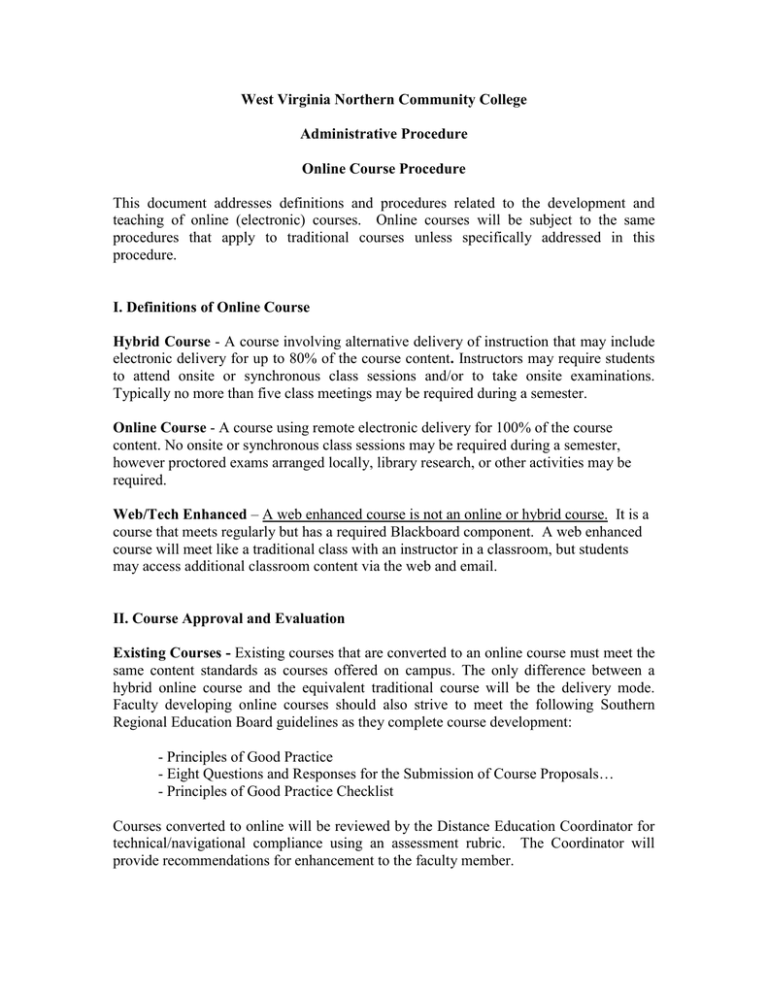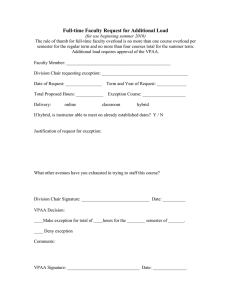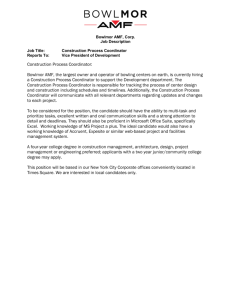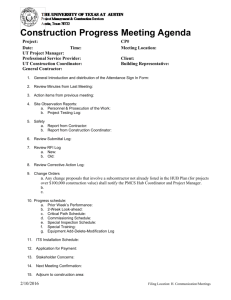West Virginia Northern Community College Administrative Procedure Online Course Procedure
advertisement

West Virginia Northern Community College Administrative Procedure Online Course Procedure This document addresses definitions and procedures related to the development and teaching of online (electronic) courses. Online courses will be subject to the same procedures that apply to traditional courses unless specifically addressed in this procedure. I. Definitions of Online Course Hybrid Course - A course involving alternative delivery of instruction that may include electronic delivery for up to 80% of the course content. Instructors may require students to attend onsite or synchronous class sessions and/or to take onsite examinations. Typically no more than five class meetings may be required during a semester. Online Course - A course using remote electronic delivery for 100% of the course content. No onsite or synchronous class sessions may be required during a semester, however proctored exams arranged locally, library research, or other activities may be required. Web/Tech Enhanced – A web enhanced course is not an online or hybrid course. It is a course that meets regularly but has a required Blackboard component. A web enhanced course will meet like a traditional class with an instructor in a classroom, but students may access additional classroom content via the web and email. II. Course Approval and Evaluation Existing Courses - Existing courses that are converted to an online course must meet the same content standards as courses offered on campus. The only difference between a hybrid online course and the equivalent traditional course will be the delivery mode. Faculty developing online courses should also strive to meet the following Southern Regional Education Board guidelines as they complete course development: - Principles of Good Practice - Eight Questions and Responses for the Submission of Course Proposals… - Principles of Good Practice Checklist Courses converted to online will be reviewed by the Distance Education Coordinator for technical/navigational compliance using an assessment rubric. The Coordinator will provide recommendations for enhancement to the faculty member. Division Chairs will review course syllabi each semester consistent with the review process for traditional courses. New Courses - New courses will follow the same procedures that any other college course must follow in terms of division and college-wide curriculum committee approval or procedures in place for special topics courses. Faculty developing online courses should also strive to meet the following Southern Regional Education Board guidelines as they complete course development: - Principles of Good Practice - Eight Questions and Responses for the Submission of Course Proposals… - Principles of Good Practice Checklist New courses developed for online delivery will be reviewed by the Distance Education Coordinator for technical/navigational compliance using an assessment rubric. The Coordinator will provide recommendations for enhancement to the faculty member. Division Chairs will review new course syllabi consistent with the review process for traditional courses. Course Enrollment Limits – The division will recommend the enrollment limit for online courses. A change in class size exceeding the present limit shall be with the written permission of the instructor. The Division Chair and Distance Education Coordinator may recommend adjustments to limits to the Vice President of Academic Affairs (VPAA), based on attrition trends and special circumstances. The VPAA will make the final decision on such adjustments. Course Assessment and Evaluation - Online courses must adhere to the institutional course evaluation policies and procedures for traditional courses. Online courses (including hybrids) will use a modified student evaluation form that is appropriate for this type of delivery and will be distributed electronically. Online course assessment will include, but not be limited to: student evaluations; course completion and success rates; data comparison to traditional sections; and general course assessment strategies. III. Faculty Load – Online courses may be taught either as part of a regular load, overload, or by part-time faculty. Full-time faculty members may teach up to two courses (6-8 credits) online as part of their normal course load. Exceptions may be requested through the Division Chair and recommended to the VPAA for approval. Courses may be taught as an overload with overload limits as per traditional courses. All faculty assigned to teach online courses will successfully utilize the official course management system. Full-time faculty have an opportunity to request assignment to online courses during the schedule development process. Unstaffed course sections will be assigned to approved adjuncts. Faculty who designed the online course shall be given preference for assignment during the scheduling process, if they have successfully taught the course within the last two academic years. When it is necessary to start a new section, as a result of a waiting list exceeding 50% of the class size, preference shall be given to the course designer to teach both sections. IV. Faculty Support – The College will provide both group and individual instruction in online teaching and course development through the Distance Education Coordinator. Additional workshops are provided by the Coordinator or facilitated by experienced fulltime faculty. Online courses may be accessed as needed by the Distance Education Coordinator, Division Chair, and Vice President of Academic Affairs, to provide student and faculty support. V. Exceptions to Procedure - Any exception to this procedure, unless already specified, shall be discussed by the faculty involved, the division chair, and the Distance Education Coordinator. If a resolution is not reached, the VPAA shall examine all the facts and make the final determination. Endorsed by DE Committee – 10-22-10 Effective Date – 11-15-10



